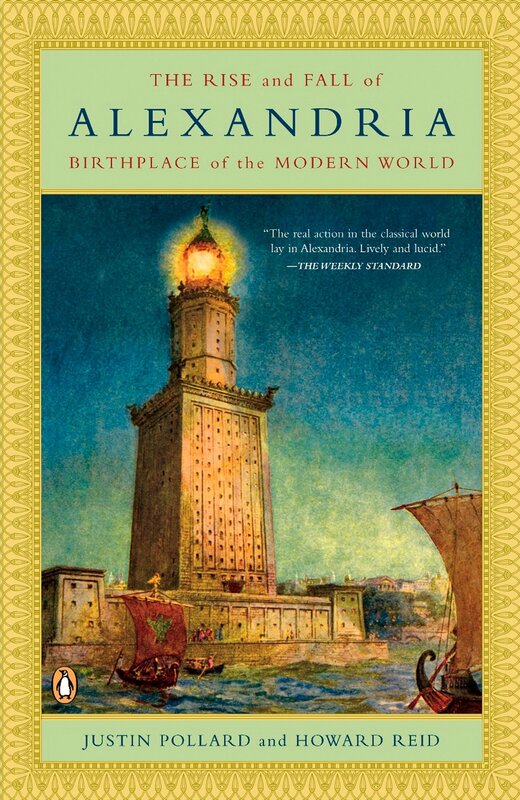|
The Rise and Fall of Alexandria: Birthplace of the Modern World
by Justin Pollard and Howard Reit Published in October 2007 352 Pages Thibault’s Score: 4/5 The Rise and Fall of Alexandria is a narrative history chronicling the rise and eventual fall of Alexandria. Many aspects of this book reminded me about the History of Future Cities by Daniel Brook. Alexandria, like the “Future Cities” that Brook writes about, was centrally planned by a tyrant. The city was, from the beginning, built as a political experiment in a creating a Greek utopia. The city was built in a multicultural environment. After Alexander the Great’s death, his empire split into warring states. Ptolemy, one of Alexander’s warlords, took over Egypt and made Alexandria his capital. Under his, and his son’s leadership the city rapidly grew. The Ptolemaic dynasty was ethnically and culturally Greek, however most of the population they ruled was Egyptian. In order to survive, they enlisted an army of intellectuals to create a new state religion and ideology that was acceptable both Greeks and Egyptians. Over time, this intellectual class was fueled by multicultural contacts with other civilizations, and boomed into a great culture of wisdom. Numerous great ideas and thinkers came from Alexandria. The city had great monuments to science and learning such as the famous lighthouse and the library. Archimedes, who is often credited as the world’s first scientists probably studied there in his youth, and conquered the city with his ideas after his death. Hero of Alexandria (Hero was a Greek name, not a descriptive noun) was a great inventor who built primitive mechanical automatons, wind powered organs, syringes, vending machines, slot machines, and even invented the first steam machine. The priest Arius began the Arian heresy of Christianity which would fracture Europe for centuries. The long era of Alexandrian intellectual achievement reached its zenith after the city was conquered from the Ptolemaic Dynasty by the Romans, and slowly declined. Christianity and other religions battled in the streets. Censorious Roman emperors created an atmosphere of suppression and silence. Great thinkers like Hypatia, a female neoplatonist philosopher, were murdered and tortured to death by angry mobs. The final death blow came when the city was conquered by Muslim armies. I learned a lot, and enjoyed the book. Good narrative histories are hard to write, because if the author focuses too much on historiography, then the story is lost. If the author focuses too much on the story, then it is easy for him to jump to unwarranted conclusions. Justin Pollard and Howard Reid carefully walked this fine line, and wrote a fantastic book. I recommend the Rise and Fall of Alexandria to anyone who is interested in the history of antiquity.
0 Comments
Leave a Reply. |
Thibault SerletMost of my articles are book reviews, but I also write about many other topics. Archives
December 2023
Categories |

 RSS Feed
RSS Feed